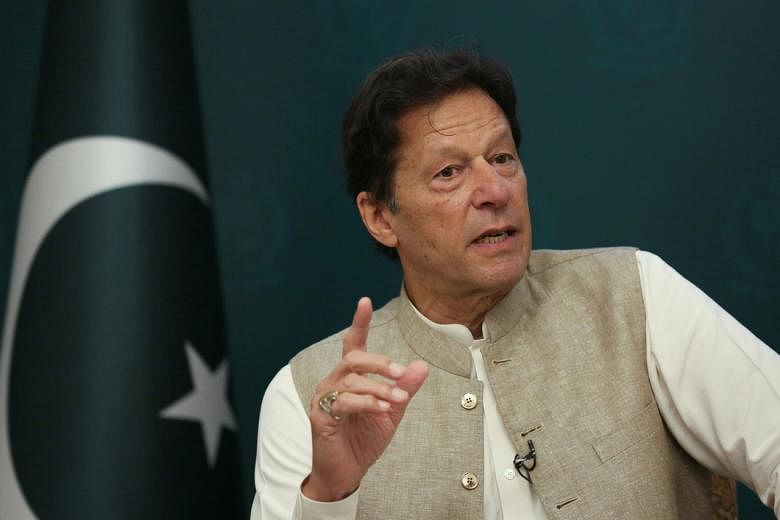NEW YORK (BLOOMBERG, NYTIMES) - Pakistan wants a relationship with Washington based on trust and common objectives as part of ensuring a political solution in Afghanistan before United States troops leave the country, Prime Minister Imran Khan said in an interview with New York Times.
Pakistan opted to join the so-called US-led war on terror and now as America leaves neighbouring Afghanistan, "basically Pakistan would want a civilised relationship, which you have between nations", Mr Khan said.
"Unfortunately, the relationship was a bit lopsided during this war on terror. It was a lopsided relationship because the US felt that they were giving aid to Pakistan, they felt that Pakistan then had to do US' bidding. And what Pakistan did in terms of trying to do the US bidding actually cost Pakistan a lot in human lives."
Mr Khan said Pakistan used its leverage to bring the Taleban to the negotiating table with the US and Afghanistan government.
His comments came after President Joe Biden met Afghan President Ashraf Ghani on Friday (June 25) at the White House. Mr Biden pledged his government's support to war-torn Afghanistan, which is witnessing a surge in violence.
The US leader, in office since January, has yet to speak with his Pakistani counterpart.
On whether Pakistan would continue to have strategic relevance to the US following the troop withdrawal, Mr Khan said Islamabad is well positioned in terms of economics, given its location and huge market.
"States really have relationships based on common interests. Pakistan is a country of 220 million people, a young population, in a sense strategically placed for the future if our relationship with India improves at some point, of which I am an optimist," he said.
"So we have one of the biggest markets on one side of Pakistan, and then China on (another) other side... And then the energy corridor, Central Asia, Iran, if that relationship improves between the US. So Pakistan, in that sense, is strategically placed for the future in terms of economics."

